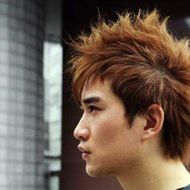Flowers in concrete: Keeping traditional Chinese opera alive in Singapore
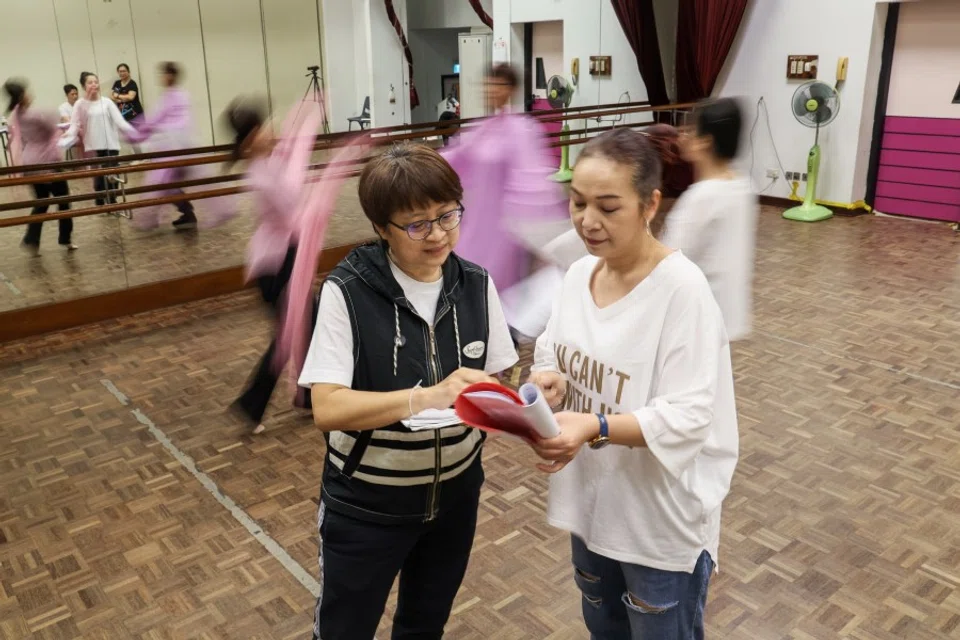
I once heard a traditional Chinese opera veteran describe the current state of the craft in Singapore: "Nowadays, practising opera is like planting flowers in concrete. Getting anything to grow would be quite something, no matter what kind of flower."
While the comment is somewhat pessimistic, it is quite real. Veterans generally hold the fort, while young actors are not yet ready to take the lead. An ageing population and the decline of local dialects have led to a lack of continuity or succession, as older opera enthusiasts gradually fade away from the theatre while younger people are not interested in watching performances. This leads to other questions: what should be performed right now? How should it be performed? And who will perform it?
Creating local scripts and plays
A script is the basis of any play. While most people are of the impression that traditional Chinese opera only staged "old plays", that is not entirely true. To break through the limitations of old scripts, expand the audience base, and increase ticket sales, many traditional opera groups are now creating new scripts and staging new plays.
Some groups are tapping on talented local playwrights to create operas with distinctive local flavour, while others seek guidance from overseas experts to create performances specifically for their troupe. There are also theatre groups that blend traditional opera elements with modern theatre, presenting new forms of works to promote traditional opera.
Innovations in scriptwriting have illuminated the local opera stage. How are they doing this? In fact, opera performers, playwrights, actors, and audiences are all part of the exploration, partaking in passing down this theatrical art.
And while the titles sound traditional and nostalgic, both are original works created locally.
In March this year, several remarkable opera productions were staged in Singapore, such as the cross-cultural Cantonese opera Brotherly Love (《棠棣情深保河山》), adapted from the Mahabharata, commissioned by the Queenstown Community Arts & Culture Committee and created by the Sin Ming Sing Cantonese Opera Centre; and When the Narcissus Blooms (《水仙花开时》), a Hokkien opera in the ya yun (雅韵, lit. "elegant rhyme") style, presented by the Traditional Arts Centre (Singapore), Sim Siew Tin Hokkien Opera Troupe, the Boon Lay Community Club Chinese Opera Troupe, and Jin Xiu Art Centre.
And while the titles sound traditional and nostalgic, both are original works created locally.
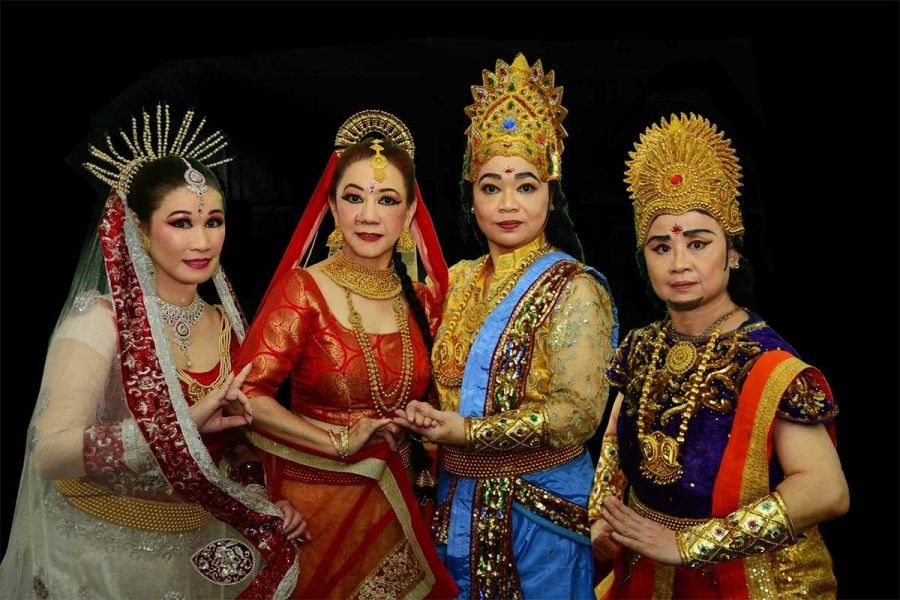
This is not the first time these groups have showcased new works. The Sin Ming Sing Cantonese Opera Centre is committed to promoting Cantonese opera shenduan (身段) or physical techniques and singing styles, and has previously staged new plays such as Past Life's Love and Hatred (《宿世情仇》), The Repentance of Emperor Liang (《梁皇宝忏》), and Lion City Legend (《狮城传》), while the Traditional Arts Centre, with its mission to disseminate and develop Chinese opera arts, has created over a dozen new productions covering various theatrical genres since its establishment in 2012.
New shows more relatable
Why create new works instead of sticking to old shows? The leaders of both groups have their own views.
Sin Ming Sing Cantonese Opera Centre artistic director Ling Tung Meng said: "Perhaps traditional opera is inextricably linked to 'classical themes, historical costumes, and ancient times,' but it is by no means a historical product that does not evolve. Cantonese opera pioneers began reforming it nearly a hundred years ago.
"For example, Cantonese opera uses vernacular Cantonese today rather than the archaic court dialect known as guanhua. But it still retains guanhua (官话) in specific paichangxi (排场戏) repertoires, so that tradition is not forgotten in the process of innovation. The scripts are also constantly refreshed, creating new works that bring a fresh experience to the audience while staying rooted in tradition."
Ling said that having old and new scripts beside each other allows one to see the literary talent and characteristics of each generation of opera practitioners as well as the progression of the art form. "The draw of new productions is that they are more relatable, with plots that resonate with the actors and the audience - sometimes, new elements are incorporated in familiar classical melodies, so that people find them easy and enjoyable," he explained.
Traditional operas inspire art appreciation and ideas for future works, while new operas provide creative space and freedom as products of the modern era.
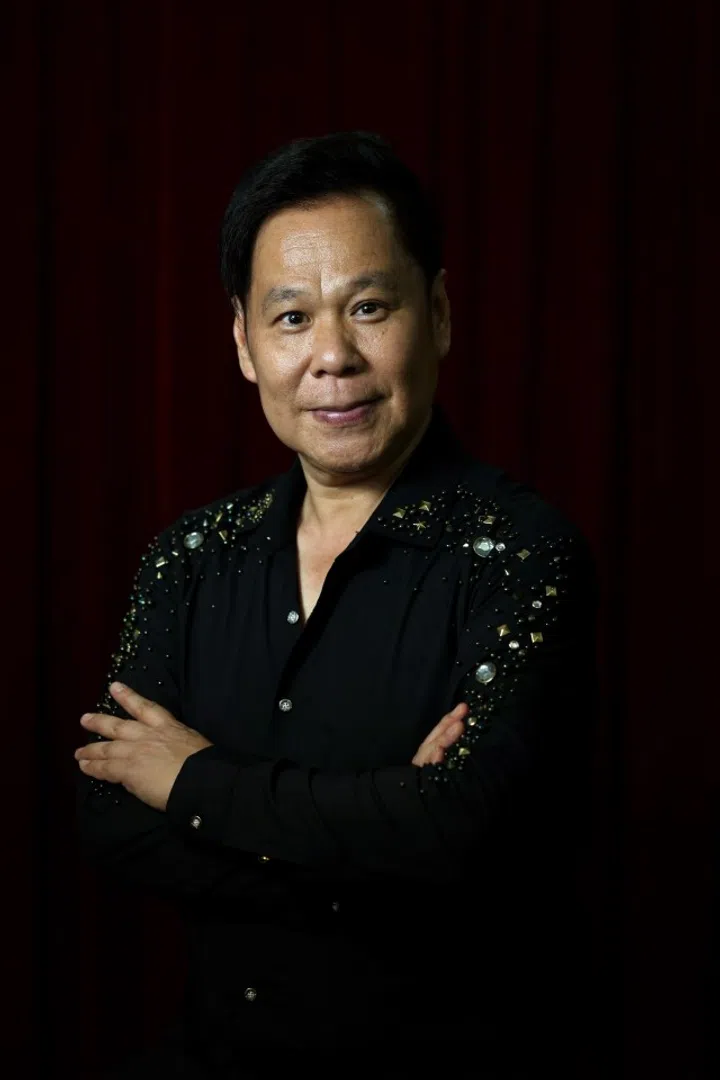
Passing down the old while seeking change with the new
Cai Bixia, artistic director of the Traditional Arts Centre, said audiences' aesthetic demands evolve over time. "Opera must keep up with the new era, otherwise it will be drowned by time."
This is especially true when young audiences are no longer familiar with Chinese history and find it hard to understand the thoughts and actions of people from the past. If only old operas are performed, it may result in the loss of more young viewers. Hence, it is necessary to create new productions that meet the aesthetic preferences of modern audiences, tapping on new media technology, stage design, costumes, and makeup to enhance character development and make roles fuller and more multidimensional.
Cai said traditional operas focus on legacy, while new operas seek innovation, and there is no contradiction between the two. Traditional operas inspire art appreciation and ideas for future works, while new operas provide creative space and freedom as products of the modern era.
However, both artistic directors feel that while having new works is good, they are not easy to stage, and there are some perennial, deep-rooted difficulties.
Cantonese opera Brotherly Love draws ethnic Indian audiences
Brotherly Love, adapted from the ancient Sanskrit epic Mahabharata, includes Indian dancers. Ling said: "It is relatively easier to arrange for ethnic Chinese and Indians to participate in Cantonese opera in multiracial Singapore; it would probably not be easy with Cantonese opera troupes in Guangdong. The intention behind presenting Brotherly Love as a Cantonese opera infused with Indian elements is to show the inclusiveness and universal values of traditional opera.
"If real problems cannot be solved, even the best script is just empty talk. We dare not hope for box office success either, as the audience pool is getting older and smaller - we would be lucky to break even." - Ling Tung Meng, artistic director, Sin Ming Sing Cantonese Opera Centre
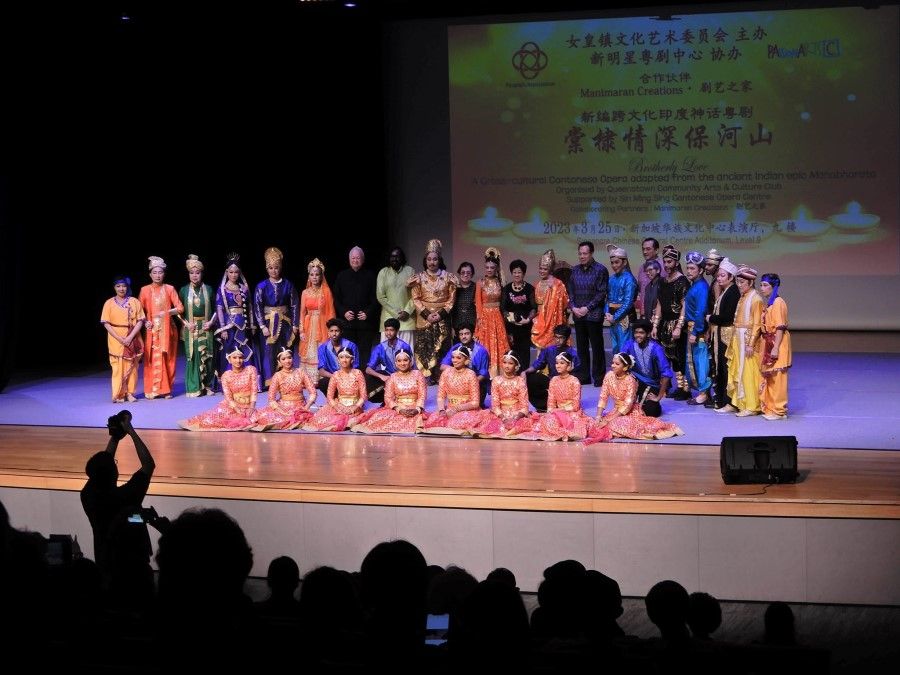
"The creative mission was quite difficult, as it required knowledge of Indian culture, ancient rituals, and dance. With the support of Indian cultural consultant and dance choreographer Surendran Rachandran, playwright Sally Low, and martial arts choreographer Choy Siew Tean, we produced the show within a short time. While there is room for improvement, it is gratifying to see the script come to life as an 'Indian-themed Cantonese opera' rather than an 'Indian play in Cantonese'. We were also happy to see ethnic Indian compatriots in the audience."
He went on to talk about the difficulties faced by small troupes in creating new shows: "From the script on paper to rehearsing to the actual performance, it requires manpower, resources, and financial support. For example, small troupes cannot afford the high rental costs of some ideal venues. Of course, this is just the tip of the iceberg in terms of challenges... If real problems cannot be solved, even the best script is just empty talk. We dare not hope for box office success either, as the audience pool is getting older and smaller - we would be lucky to break even."
Setting a new style for local Hokkien opera
Hokkien opera When the Narcissus Blooms is tailored to the groups and actors involved. While the story is fictional, it is tightly woven and profoundly meaningful. The music combines the essence of Xiang opera from mainland China and Gezai opera from Taiwan, aiming to establish a new ya yun style for Hokkien opera in Singapore.
The scarcity of professional opera actors is a significant hindrance to the creation and rehearsal of new shows.
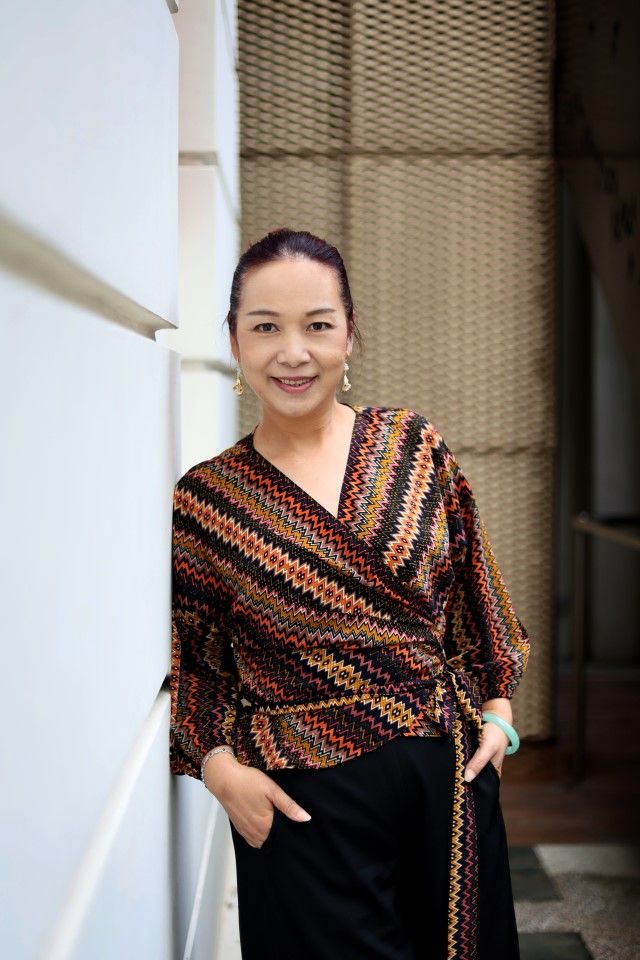
Despite box office success and positive reviews, Cai remains objective about the new production: "The actors in this production come from different amateur arts groups, and their fundamentals are relatively weak, with varying levels of performance; the team was also formed at short notice. Everyone has day jobs, so it was difficult to gather for rehearsals, and there was not quite enough time to work things out. If we had more time to practise, I believe the overall quality of the show would have been better."
The scarcity of professional opera actors is a significant hindrance to the creation and rehearsal of new shows. Cai notes that there are no professional opera schools or full-time theatre groups in Singapore - most performers are amateur opera enthusiasts. And while they do their best, they were not formally trained since young and do not have much time to study the craft. Rehearsals are plot-driven, and they can only focus on drilling the required movements for their characters while dropping more technically challenging actions.
Notably, both shows were written by local playwrights: Brotherly Love by Sally Low, and Narcissus by Teo Sung Lung.
Cantonese opera emphasises tonality
Sally Low Moon Choon - "Sister Choon" to Ling Tung Meng - is a veteran Cantonese opera actress who plays hua dan (花旦) roles, or lively, vivacious young female characters. Her full-length works include The Heroes of Southern Song (《南宋英烈传》), Lord Xinling Stealing the Seal to Rescue Zhao (《信陵君窃符救赵》), The Unfinished Love in the Red Chamber (《红楼琴断未了情》), Past Life's Love and Hatred (《宿世情仇》) and The Tiger Talisman (《虎符》), as well as many opera highlights. She said: "I joined the Cantonese opera circle after leaving school. Besides acting, I often revised scripts and lyrics. Later, in Guangzhou, I came under the guidance of the late playwrights Chen Guanqing and Liang Jianzhong, and gradually began writing scripts."
Low has learned a lot about writing Cantonese opera. Unlike writing a standard theatrical piece, Cantonese opera is constrained by tonal patterns and rhymes. Tonality and rhyme have to be considered; also, Cantonese has nine tones, so one must pay careful attention to each note, consonant and syllable, while tonality has to be accurate. So, writing Cantonese opera requires a certain understanding of Cantonese language and Cantonese music.
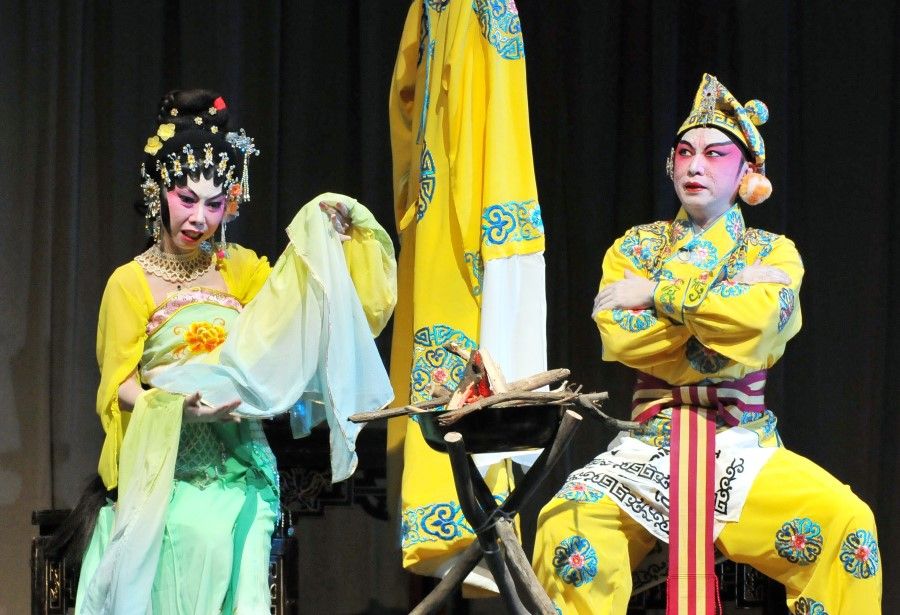
Low fights shy of evaluating her own works and humbly seeks more opportunities to learn. "New and traditional pieces alike would have audiences who accept and reject them. Adding new elements to the traditional concept as appropriate, preserving traditional flavour, bringing the essence of opera to new audiences: that is our current mission."
In 2014, Teo wrote the Xiang opera Our Story, Our Opera (《阮的故事、阮的戏》), chronicling the ups and downs of the local opera scene and worries about opera troupes' survival.
Incorporating local themes into Xiang opera
Teo Sung Lung is an amateur opera enthusiast with no training in traditional opera. Since her first contact with Xiang opera in 1989, she felt her way around while participating in performances, moving from acting to scriptwriting. So far, she has written four opera highlights, four operettas, and three full-length pieces, all of which are Xiang opera scripts.
When it comes to the plots and feel of the opera, Teo said: "With words, I create stories, and then the collective efforts of composers, directors, actors, and stage design teams turn the plot into dynamic scenes and emotional images. To create the right mood, rhythm, and visual impact, the scriptwriter must learn to strike a balance - keep and remove plot points as appropriate, to avoid excessive length. Opera originates from life and is presented on stage through various theatrical methods, including musical design and opera techniques. In my view, a concise approach is more in line with today's fast-paced society and may be more appealing to the audience."
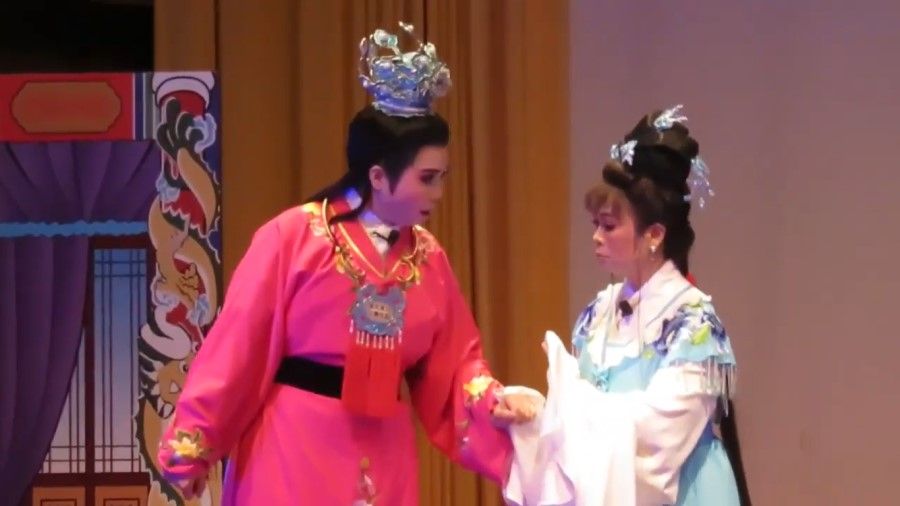
Opera may be an ancient art, but who says it can't include realistic local themes? In 2014, Teo wrote the Xiang opera Our Story, Our Opera (《阮的故事、阮的戏》), chronicling the ups and downs of the local opera scene and worries about opera troupes' survival. She hopes for a chance to explore and incorporate local historical stories into opera performances, as audiences would probably identify better with familiar and relatable themes that evoke collective memories.
Teochew opera seeks guidance from overseas experts
Besides the Sin Ming Sing Cantonese Opera Centre and the Traditional Arts Centre, the Chinese Theatre Circle (CTC) is also writing new shows. CTC artistic director Joanna Wong Quee Heng has even written a Cantonese opera Regret of the Qing Palace (《清宫遗恨》), which is sung in English. All this shows how local theatre troupes are exploring scriptwriting.
Apart from uncovering local playwrights, some theatre troupes are also turning to overseas opera experts, such as Nam Hwa Opera, which is dedicated to passing down, promoting, and developing Teochew opera - for its efforts, the group was recently the organisational recipient of the Singapore Chinese Cultural Contribution Award.
Nam Hwa Opera president Toh Lim Mok said Singapore still lacks scriptwriting and composing talents in Teochew opera, so when it comes to writing new plays, Nam Hwa often talks to traditional Chinese opera experts in Shantou. For example, the martial arts-themed The Severing Sword (《情断昆吾剑》) and the historical piece Lin Da Qin (《状元林大钦》) were both written by Guangzhou playwright Huang Jianfeng.
These so-called new plays also include some adapted pieces, and many Teochew operas come from other sister genres. Since Nam Hwa was established, it has adapted at least 20 works. Toh said: "After 1985, Nam Hwa invited some directors from China to guide and improve our operas, during which we also adapted good works from Shanghainese Yue opera and other opera genres into Teochew opera, establishing a cooperative relationship. This is also a form of informal cultural exchange between Singapore and China."
"Whenever there is a new show debuting, attendance is generally better than old shows..." - Tan Ah Hiang, general secretary, Nam Hwa
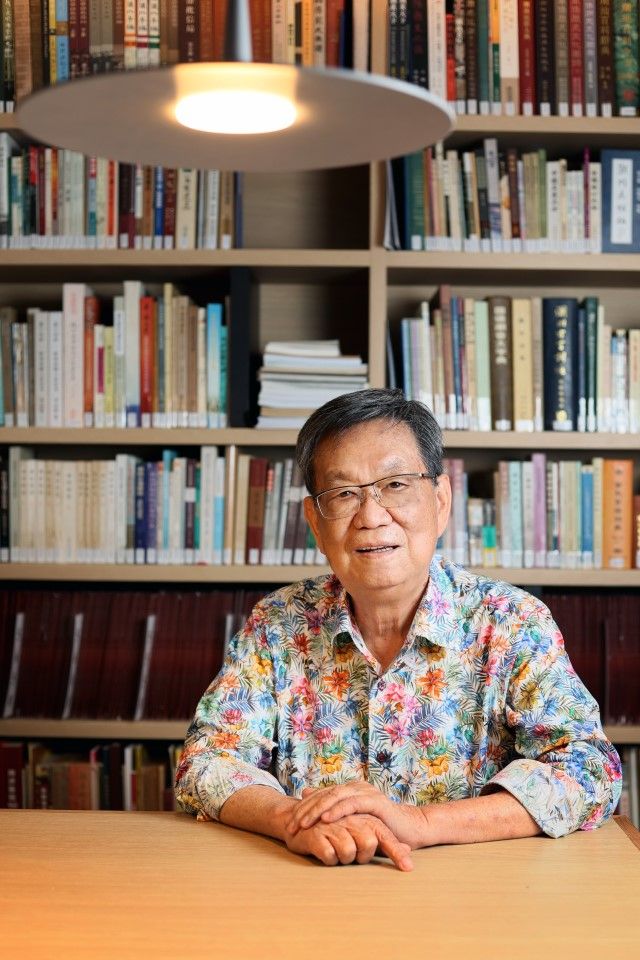
Audiences young and old love the new shows
Toh found that Teochew operas adapted from other traditional repertoires are simply a repackaging of old ideas. Young people cannot identify with the style and content of old scripts, and producing new shows is an exploratory way to attract young people to the theatre.
Nam Hwa general secretary Tan Ah Hiang said, "For example, The Severing Sword has specially designed sound and lighting effects. The audience tends to be younger, especially those who have never watched Teochew opera. They feel that it is as good as watching a concert. The plot is not draggy, and the pacing is good. As long as young people manage to sit through it the first time, if there are more good shows, they will definitely come watch them."
Furthermore, new plays are not only aimed at young people - most audiences like them too. Tan said: "Local audiences appreciate the freshness. Whenever there is a new show debuting, attendance is generally better than old shows, unless it is a classic and the actors are strong singers."
A more practical reason for producing new plays is budget considerations. Tan gave a simple example: "If a popular show from five years ago were to be staged again today, it would cost the same as creating a new piece. The show from five years ago would have a script and music, which are the only two things we wouldn't have to pay for again. But to restage, we would need to hire a director, rent a venue, work on choreography, design lighting, sound, costumes, props... these are all additional expenses. Since the investment is the same, why not produce a new show? Then there is casting. We can invite the original cast, but can they outperform themselves from five years back? If we form a new cast, they will be compared to the previous cast, which puts pressure on the new actors even before they perform."
Not innovating for the sake of it
Innovation is indeed the general trend, but each troupe feels that "innovation" should not become an empty slogan, and should not be done just for the sake of it.
Ling said: "Traditional shows were once new too. From being introduced for the first time to being well-known among the public, it took the efforts and contributions of many people involved in opera; this is what new and old shows go through. If the new shows and plots are not too highbrow and removed, and can move and touch the audience and not be a flash in the pan performed only once, then they are more likely to be passed down, and innovation will not be pursued just for the sake of it."
"Audiences only have one criterion: loving 'good works'. Old or new, as long as they are well-acted and the audience like it, they are good works." - Cai Bixia, artistic director, Traditional Arts Centre
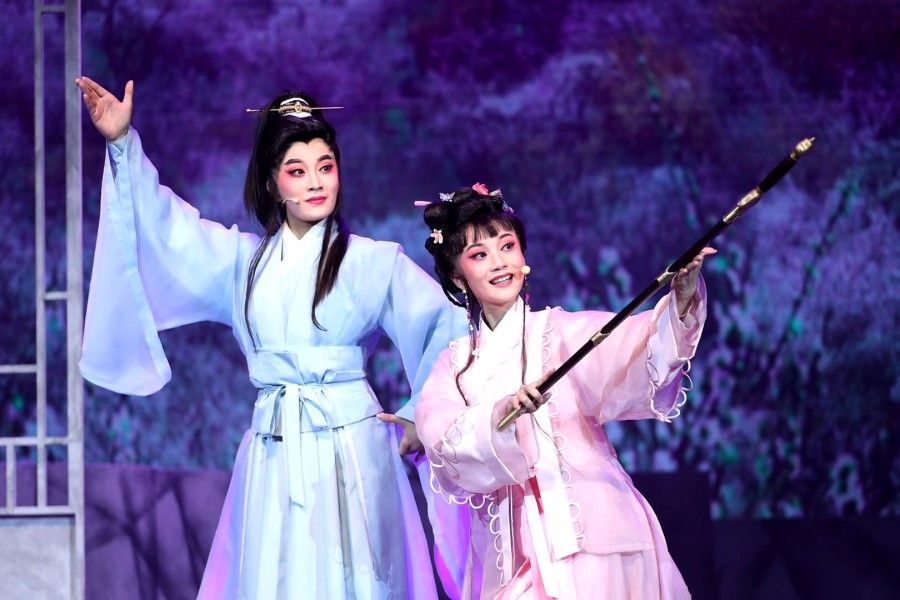
Cai Bixia shares a similar view: "We must have reverence for the classics. If we keep catering to modern audiences and create without regard for tradition, such innovation is destined to fail. Fortunately, the local opera market is relatively small. If the audience likes it and circumstances permit, new works can still be restaged locally, and even represent Singapore on the international stage."
There should also be a balance in the number of new and old works, as classic works have their fans, and some opera enthusiasts only like authentic traditional pieces.
The draw of good works
Ling Tung Meng feels that whether old or new, works should focus on performing with heart. Cai Bixia also says: "Audiences only have one criterion: loving 'good works'. Old or new, as long as they are well-acted and the audience like it, they are good works. Even as the Traditional Arts Centre creates new works, they also perform well-known traditional operas like The Butterfly Lovers and Legend of the White Snake, so that fans of traditional opera are also satisfied."
In recent years, Nam Hwa has revitalised old works that older audiences like, by using new actors. Toh said: "We focus on having young actors perform traditional works, such as young huadan Tan Wei Tian, who has performed in works like Su Liu Niang (《苏六娘》), Liu Mingzhu (《刘明珠》), and Prosecuting the Husband (《告亲夫》). These works haven't seen a significant increase in young audiences, and we hope the younger generation will bring the older generation to watch them."
Moving forward, Nam Hwa wants to tell Singaporean stories through Teochew opera. Following the success of their Chaoju opera production Matchmaking At The Five Foot Way (《五脚砌-相亲》) a few years ago, the group will premiere the musical titled Who Says It First (《戏谁先说》) in June, which combines popular music and Teochew opera singing. With this work, Nam Hwa aims to change the perception of traditional opera among young people and raise awareness of the benefits and importance of the Teochew dialect.
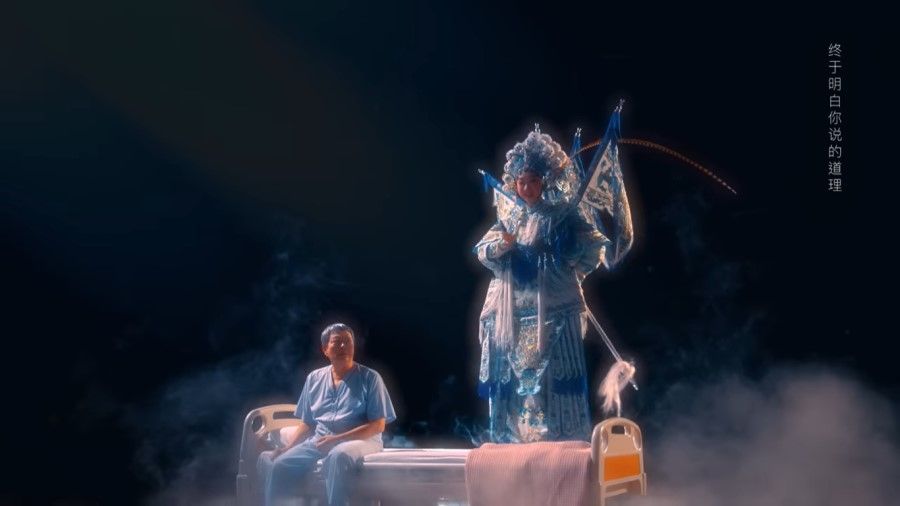
Integrating traditional opera into plays
Opera troupes and modern theatre are close allies, with drama groups incorporating the essence of traditional opera into their performances.
For example, in March this year, The Theatre Practice presented the musical comedy The Soldier & His Virtuous Wife, where the characters and performances clearly matched typical opera roles. Wild Rice also staged an English opera version of The Butterfly Lovers in May, where the actors were trained in Chinese opera movements.
"I am also fascinated by the format of Chinese opera, which preserves refined techniques and showcases timeless beauty. On this rich foundation of tradition, I can see the greater possibilities of artistic expression." - Goh Boon Teck, artistic director, Toy Factory Productions
Of course, we have to mention Toy Factory Productions, which has declared it wants to explore the connection between traditional opera and contemporary drama. Last year, artistic director Goh Boon Teck presented the Beijing-style play The Crab Flower Club, and this year, they performed a Hokkien opera within the play Quest - The White Hare. These are two brilliant results on his journey of experimentation in recent years.
Goh says he grew up with Chinese opera as his mother was a Hokkien street opera performer, and he was influenced by it from a young age. He said: "If you ask what moves me about Chinese opera, it's that it opened up my curiosity about art, which drove me to pursue a life in the arts. Also, I think what attracts me to Chinese opera is the pure spirit of the performers. I am also fascinated by the format of Chinese opera, which preserves refined techniques and showcases timeless beauty. On this rich foundation of tradition, I can see the greater possibilities of artistic expression."
On combining traditional opera and drama, Goh said the Beijing opera versions of Crab Flower Club and Quest are not his first innovations in this field. His earlier works in the genre of "operatic drama" include Spirits, Deciphering the Peach Garden Oath and the well-known Titoudao. However, he believes that his recent works Crab Flower Club and Quest have a deeper meaning in exploring and examining works from different eras.
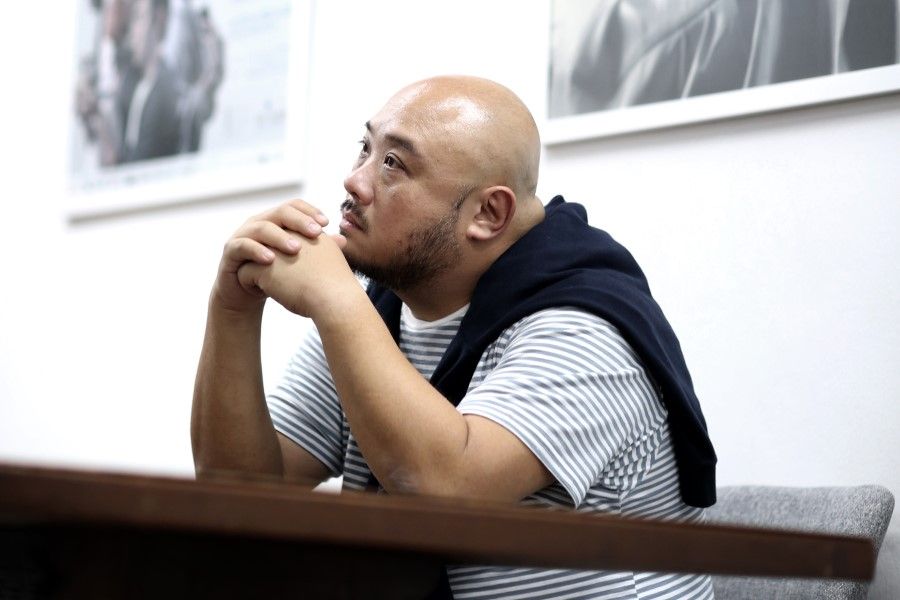
When traditional opera meets drama
So-called originality lies in discovering the connections or similarities between two or more topics or concepts. Goh saw the similarity between traditional opera and drama, and found common ground to combine them. He said: "From the fundamental perspective of creation, drama and opera are text-based. Drama has a script, while opera has a libretto; drama has dialogue, while opera has lyrics. Both drama and opera are fictional, but overall, drama focuses on building the structure of the story, while opera emphasises the feel.
"In terms of performance, opera starts with visual form, while drama is driven by heart. Although they may appear different, their ultimate goal is the refinement and delivery of emotions. The fusion of the two is also a clash, which elicits different effects and reactions. This reaction is not limited to the text itself but influences all aspects of the creative process, including lighting, costumes, stage design, effects, and makeup. I believe that this kind of creation is worth experiencing and has enduring value."
Goh says he does not mind a "jarring" result, however, these works need to be constantly improved to stay good. "Not by eradicating the jarring elements but by rationalising and refining them. I think this is the step by step creative model, where works transform from a cocoon to a butterfly, ultimately becoming valuable pieces of art for appreciation."
Goh observed that some of the audience of Crab Flower Club and Quest had never seen a play or opera before; there were young children and the elderly; those who had seen the English version of Crab Flower Club in 2009 and longtime fans of the Sin Sai Hong Hokkien opera troupe from over 20 years ago. He believes each audience member would be engaged in the new work according to their individual preferences. Traditional opera and drama would be drawn closer, as would their respective audiences.
"Innovation does stir anticipation from the audience, but in the end, is it Chinese opera or drama? " - Ling Tung Meng, artistic director, Sin Ming Sing Cantonese Opera Centre
Joy and concern about hybrid works
How do traditional opera groups view these hybrid works?
Cai Bixia said: "Combining traditional opera and modern drama is not new. It has been done by our predecessors locally and abroad, and it has been praised." She was the movement consultant for The Theatre Practice's production The Soldier & His Virtuous Wife, an adaptation of the Yuan dynasty musical comedy Qiu Hu Teasing His Wife (《秋胡戏妻》).
"When the artistic director of The Theatre Practice, Kuo Jian Hong, approached me to discuss this play, we both agreed on the traditional concept of using typical operatic roles to portray characters, giving each character distinctive stage characteristics. As it turned out, the theatre was packed for every performance, and modern audiences loved it."
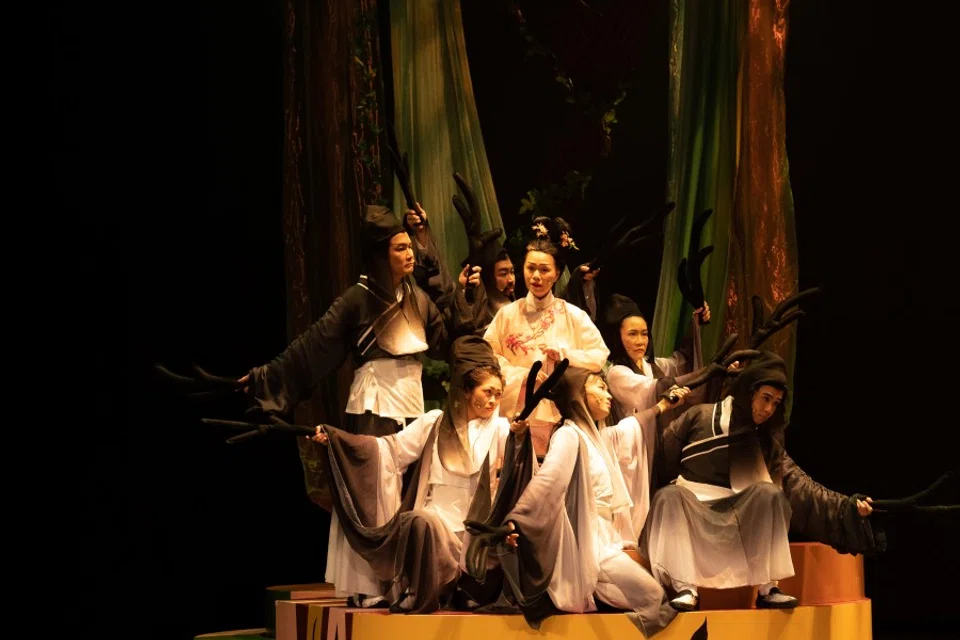
On the other hand, Ling is concerned that the dramatic elements in these hybrid works may dilute Chinese opera. He believes that there should be a substantial component of Cantonese opera in the new work, and the focus should be on the four elements of Cantonese opera: singing, acting, recitation, and martial arts for the work to be considered Chinese opera. He said: "In recent years, all sorts of Chinese operas and plays have featured elements of operatic musicals or incorporated Cantonese opera singing. Innovation does stir anticipation from the audience, but in the end, is it Chinese opera or drama? "
Chinese opera actors will need to have the confidence and skills to perform on the dramatic stage, while drama actors may occasionally need to demonstrate their skills in traditional Chinese opera. Versatile actors who can do a bit of everything will be more sought after.
Innovation and cross-disciplinary work are future trends
As a modern theatre practitioner who loves Chinese opera, Goh is determined to continuously explore where Chinese traditional drama, such as opera and street theatre, and contemporary drama meet. "We have a rich identification with Chinese history and culture. Our ancestors and roots are Hokkien, Teochew, Hainanese, Cantonese, and Hakka. In the next ten years, through these marks, I will try to find the meaning of being a contemporary theatre creator and what it can bring to the world. We want to say something with our work, to let them fly beyond borders to places farther off. That is the direction I am working towards."
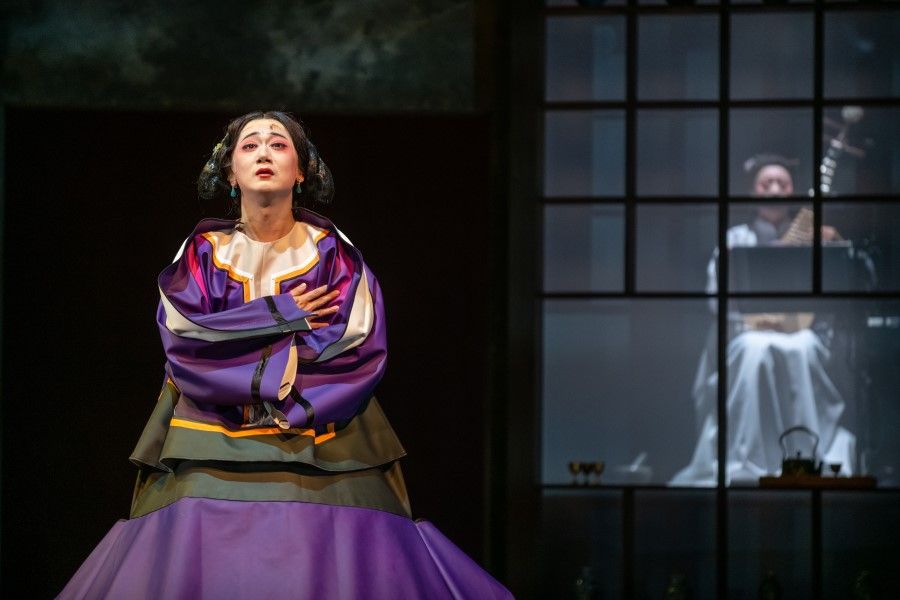
We can tell that innovation and cross-disciplinary work will be major trends in the Chinese opera industry and even the entire performing arts sector.
This also means new requirements for actors. Chinese opera actors will need to have the confidence and skills to perform on the dramatic stage, while drama actors may occasionally need to demonstrate their skills in traditional Chinese opera. Versatile actors who can do a bit of everything will be more sought after.
Body movements and vocal training as drama actors perform Chinese opera
Besides Ren Weichen (a "Cheng school" singer who plays qing yi (青衣) roles as major female characters, mostly dignified wives or mothers), Zhang Manxi (who plays daoma dan (刀马旦) or female warrior roles), and Sin Sai Hong hua dan Wei Li Fen, most of those in Crab Flower Club and Quest are drama actors without a background in Chinese opera, yet they have to perform it convincingly.
Goh said: "At least six months before, the actors have to immerse themselves in workshops, figuring out everything from body movements to vocal training. As for how much they grasp and the depth of their understanding, that depends on the individual. The most important thing is the learning process, believing in oneself, and ultimately presenting this experience on stage. They will apply what they learn, and how opera is performed will become part of a memory, energising their acting careers. Evolution has to start from somewhere."
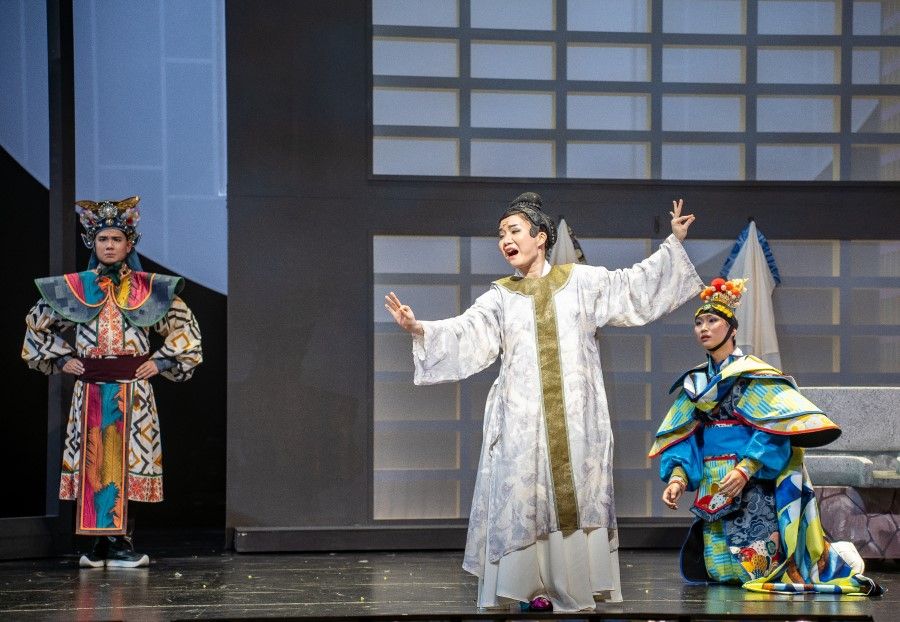
Clement Yeo, who performed in Quest, had an unforgettable journey. He said he was touched whenever Sin Sai Hong hua dan Wei Li Fen sang her parts in the show which changed his perception of Chinese opera. "I think being guided in the body movements and singing style of Chinese opera is excellent physical and mental exercise for any actor. Previously, I mistakenly believed that Chinese opera exaggerated one's actions or emotions, but in fact, the emotional resonance of traditional opera is genuine. "
Yeo said Quest opened the door for more audiences, whether or not they had watched Chinese opera before. He said: "Younger people with shorter attention spans would be able to understand the essence of traditional opera. If given the opportunity, I would definitely participate in such works again because I get to reconnect with my Hokkien roots and feel closer to my grandmother. I'm now interested in how traditional opera was performed in the past!"
"Chinese opera has never stuck to rigid rules. For example, during the era of model theatre during the Cultural Revolution, Peking opera was combined with symphony music, creating many popular works." - Zhang Manxi, Chinese opera and drama actress
Happy to learn new art forms
In contrast, Zhang Manxi learned Chinese opera for nine years, but had fewer rhymed verses and singing sections in Crab Flower Club, in favour of modern lines and performances. She also participated in Quest to guide the actors in traditional Chinese opera movements.
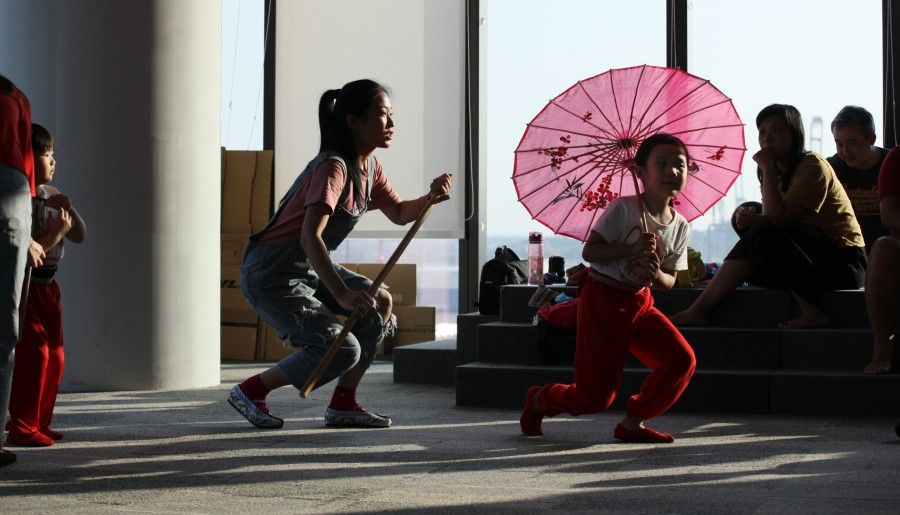
When it comes to actors practising across different artistic disciplines, especially when stage actors cross over to learn the comprehensive art form of traditional opera, Zhang Manxi first elaborated on the tough training of professional opera actors. She said they not only have to master voice, stage movements, and expressions, but also singing, recitation, and martial arts; many practised daily from an early age from morning till night to master moves and techniques that require at least six years of training to perfect.
"For stage actors who have not had this training, it can be quite demanding. However, even if the training is short and we cannot capture the essence, we can still imitate the form. After all, as actors, why not learn a more comprehensive form of performance? If I were asked to learn an unfamiliar art form, I would cherish the opportunity, and I believe all professional actors would feel the same way."
Zhang supports the integration of traditional opera and stage plays. She said: "Chinese opera has never stuck to rigid rules. For example, during the era of model theatre during the Cultural Revolution, Peking opera was combined with symphony music, creating many popular works. New forms bring novel experiences to the audience, which is meaningful."
However, she also understands that the aesthetic perception of art is subjective, and it is not easy to have new forms accepted by more people.
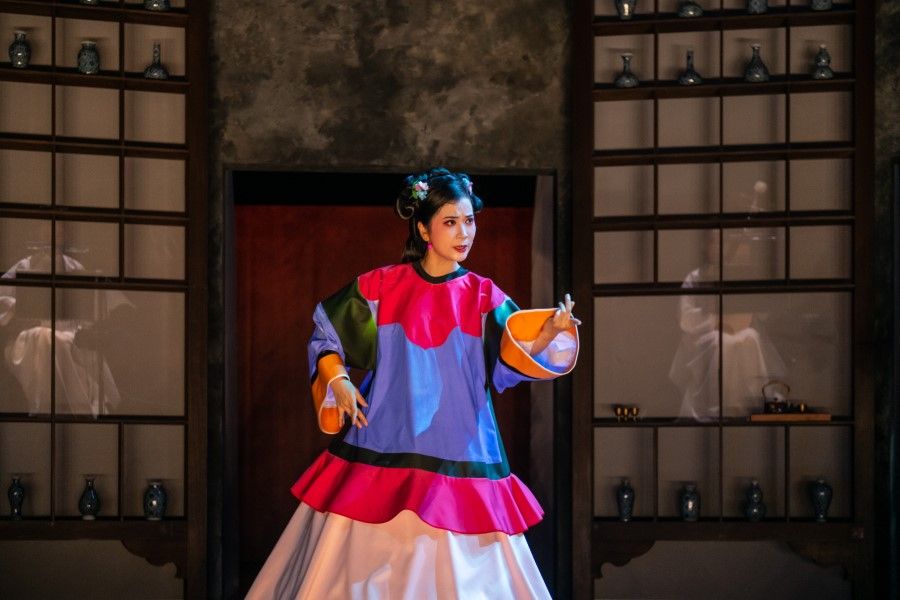
The artistic director of local company Singapore Focus Theatre, who is active in both Chinese opera and drama, revealed that her upcoming production will integrate three forms of art: drama, Chinese opera, and classical dance. Currently, she is gathering artists from various fields, to present a fresh and innovative work.
Zhang said, "Cross-genre productions need to find their own way, and they must put effort into cultural heritage rather than just combining singing, recitation, and movements."
From the audience's viewpoint
What kind of Chinese opera productions does the audience want?
Fu Chong, a frequent audience of traditional Chinese opera performances and a lover of literature and history, said while it may be difficult to put up new large-scale adaptations of historical dramas in Singapore, shorter adaptations of historical plays might be feasible.
"For example, the Taiwanese Beijing opera The Kingdom of Desire adapted from Macbeth is a refreshing interpretation. Modern-themed plays, if the storyline is interesting, can also capture the audience's attention, such as portraying modern family ethics or relationships through traditional methods," he elaborated.
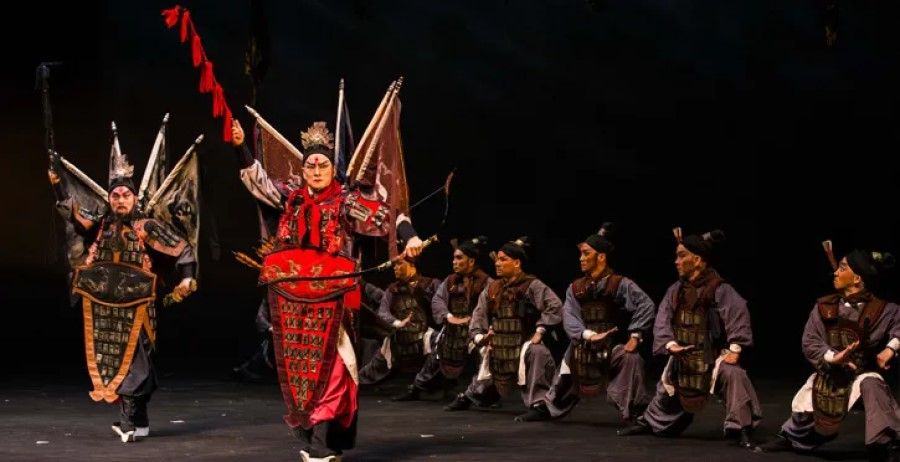
Fu Chong has seen a growing trend of combining Chinese opera and drama on the local stage. "This fusion gives theatre, which primarily relies on dialogue, additional methods of expression, and allows those who are less familiar with traditional opera to experience its charm in small doses. Having singing segments as embellishments not only helps these audiences adapt, but also gives them an opportunity to understand: traditional Chinese opera is beautiful."
In Fu's view, this may serve as an entry point for traditional Chinese opera to reach a broader audience. Traditional Chinese opera is rapidly losing its audience due to factors such as singing style, dialects, performance duration, storylines, and presentation methods, especially among the younger generation; and when the younger generation is lost, any art form will decline. However, when incorporating Chinese opera elements into drama becomes excessive, it is the quality of each production that will determine whether or not the audience will be lost.
This article was first published in Lianhe Zaobao as "旧曲新调 传统戏曲邂逅当代话剧".
